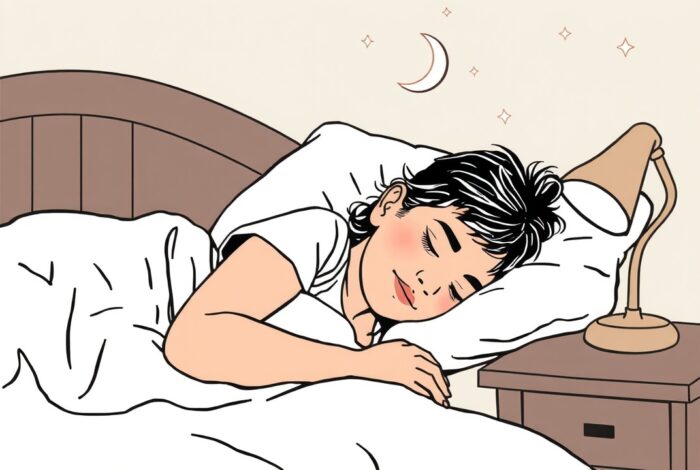Struggling to fall asleep fast? You’re not alone. Whether it’s stress, a noisy environment, or just too much on your mind, there are simple techniques to help you drift off. Let’s explore some proven methods to help you sleep better starting tonight.

1. Try the 4-7-8 Breathing Method
This technique is like a magic trick for relaxation. Here’s how it works:
- Inhale through your nose for 4 seconds.
- Hold your breath for 7 seconds.
- Exhale through your mouth for 8 seconds.
This method helps calm your mind, slows your heart rate, and preps your body for sleep. It’s a favorite among people who struggle with insomnia.
2. Set a Consistent Sleep Schedule
Your body thrives on routine. Going to bed and waking up at the same time every day—yes, even on weekends—helps regulate your internal clock. Over time, this habit trains your body to feel sleepy at the right time.
3. Create a Relaxing Bedtime Routine
Think of it as a wind-down ritual. Take a warm bath, read a calming book, or listen to soothing music. These activities signal to your brain that it’s time to relax and get ready for bed.
4. Turn Down the Lights
Bright lights can trick your brain into thinking it’s daytime. Dim the lights an hour before bed and avoid screens. If you need to use your phone, consider turning on night mode to reduce blue light exposure.
5. Keep Your Room Cool
The ideal bedroom temperature for sleep is around 65°F (18°C). A cooler room helps your body drop its core temperature, signaling that it’s time to sleep.
6. Use the Military Method
This method was designed to help soldiers fall asleep anywhere in just two minutes. Here’s how:
- Relax your entire face, including your tongue and jaw.
- Drop your shoulders and let your hands fall naturally.
- Exhale and relax your chest.
- Focus on relaxing your legs, starting from the thighs down to your toes.
- Visualize a calming scene, like lying in a canoe on a still lake.
7. Try Progressive Muscle Relaxation
This technique involves tensing and relaxing each muscle group in your body. Start at your toes and work your way up to your head. It’s a great way to release physical tension and help your body relax.
8. Limit Caffeine and Alcohol
Caffeine can stay in your system for up to 10 hours, so skip that afternoon coffee if you’re struggling to sleep. As for alcohol, while it might make you feel drowsy, it disrupts your sleep cycle and can leave you tossing and turning.
9. Listen to Relaxing Sounds
White noise, rain sounds, or soft instrumental music can help you fall asleep quickly by masking disruptive noises. There are plenty of apps and playlists designed to help you relax.
10. Make Your Bed a Sleep-Only Zone
Keep work, TV, and scrolling off your bed. Associating your bed strictly with sleep helps train your brain to know it’s time to rest when you lie down.
11. Avoid Heavy Meals Before Bed
Late-night snacks are fine, but avoid heavy, greasy meals close to bedtime. They can make you feel uncomfortable and interfere with your sleep.
12. Practice Sleep Meditation
Guided meditation can work wonders. Apps like Calm or Headspace offer sleep-specific meditations designed to quiet your mind and help you drift off.
13. Exercise, But Not Too Late
Regular physical activity improves sleep, but exercising right before bed can make it harder to wind down. Aim to finish your workout at least three hours before bedtime.
Bonus: Quick Techniques for Every Age Group
- Kids: Stick to a predictable bedtime routine with calming stories.
- Teenagers: Limit screen time an hour before bed.
- Adults: Invest in a comfortable mattress and pillow.
Falling asleep doesn’t have to feel like a nightly battle. With these tips, you’ll not only fall asleep faster but also enjoy better quality sleep. Sweet dreams!
